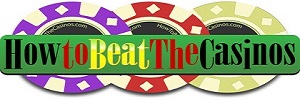Can You Actually Profit from the Top 10 Betting Systems?
Alright legends, it’s Dave the Gambler here from HowToBeatTheCasinos.com, and I’ve got a question for you—have you ever tried one of those “fail-proof” betting systems and thought, “This might just be the one?” If you have, you’re not alone. There’s a whole internet full of hopeful gamblers testing, tweaking, and swearing by these so-called strategies. I recently watched a video called “Can I Profit Trying the Top 10 Gambling Strategies?” and mate, it got me fired up.
I’ve seen most of these systems before. I’ve used a few. Some I learned the hard way. Some I just laughed off from day one. But this video really laid them out in a fair, honest way—no hype, just cold hard facts. So let’s unpack what happened, why most systems don’t work, and whether there’s anything to gain from them beyond an expensive lesson.
The Big Idea: Systems vs. House Edge
Here’s the thing no betting system wants to admit up front: the house always has the edge. That edge might be tiny in blackjack or brutal in keno, but it’s always there. So no matter what strategy you’re using, you’re playing against maths. That’s like showing up to a gunfight with a pocket knife and hoping confidence will save you.
Betting systems don’t change the rules. They just change how you bet. And while that can affect how long your bankroll lasts or how emotionally you ride the wins and losses, it doesn’t make the odds suddenly tilt in your favour. That’s why any system that promises profit is built on sand.
Still, the guy in the video gave each system a real go. So let’s break down how they performed and what we can learn from them.
1. Martingale (Double on Loss)
Yes, it’s here again. And yes, it failed again. After a few losses in a row, you’re doubling your bet to a level that either breaks your wallet or hits the table limit. When it works, you recover your losses and make one unit profit. But the risk-to-reward ratio is horrendous. Like using a flamethrower to light a candle.
2. Paroli (Double on Win)
This one had some lucky runs—but like all systems based on streaks, when the streak ends (and it always does), you’re back where you started. It’s less risky than Martingale, sure. But does it beat the game? Nope. It’s just a fancy way of saying, “Let’s gamble with our winnings until we lose them.”
3. Fibonacci
People love this because it sounds clever. “It’s mathematical!” they say. So is your power bill. Doesn’t mean it’s a winning strategy. Like Martingale, the bets escalate quickly, and while it looks good on paper, you still need a string of wins that reality rarely delivers.
4. D’Alembert
This one’s more subtle—up one unit after a loss, down one after a win. Sounds reasonable, but it’s still rooted in the same flawed logic: that past outcomes affect future ones. They don’t. This system just slow-walks you to the same place—your money trickling away one unit at a time.
5. Labouchère
Also known as the cancellation system. The video’s test showed exactly what I’ve seen in real life: if you get a few early wins, it feels like genius. But hit a few losses, and suddenly you’re chasing numbers like a man in a maze. It gets out of control fast. And all for what? A tiny theoretical profit that you may never actually lock in.
6. Flat Betting
Here’s the most honest one in the bunch. You bet the same amount every time, win or lose. The house edge still eats away, but at least you’re not risking your shirt. If you just want to gamble for fun without going broke in an hour, flat betting is your friend. But a system that “doesn’t lose quickly” is still not a winning system.
7. Oscar’s Grind
This one aims to recover losses slowly by betting more after a win and holding steady after a loss. It’s like a cautious version of Paroli, but it still depends on positive runs. Over a long enough timeline, the house edge still wins. It may take longer, but gravity always pulls you down.
8. The 1-3-2-6 System
This is a favourite among roulette players. It’s a predetermined sequence where you increase bets over four steps, resetting after a loss or a win. It helps control losses during bad streaks, but again, no impact on your long-term outcome. If you hit all four wins in a row? Sure, you’ll feel like a king. But that doesn’t happen often.
9. The Contra d’Alembert
Reverse of the standard d’Alembert. Increase after a win, decrease after a loss. It’s meant to ride hot streaks. But unless you time your exit perfectly, hot streaks can disappear in one bad hand—and then the system turns into a guessing game.
10. Kelly Criterion (Bankroll Management)
Now here’s something with some merit. It’s more of a mathematical guide for bet sizing than a system, and if you apply it correctly, it does help preserve your bankroll. But it still doesn’t give you an edge. If you apply the Kelly formula to a negative expectation game, you’re just losing money more slowly—and responsibly.
So, Did He Profit?
Short answer: no. Not in the long run. The systems that looked promising in the short term gave it all back in longer sessions. And that’s the real lesson here. Any system can look genius over an hour or two. But if you keep playing, the house edge catches up. It always does.
What Can We Learn?
- Systems are entertaining, not magical. They can make the game feel structured, and that’s fine. But don’t mistake structure for strategy.
- Bankroll management matters. That’s the one real takeaway. Not how you bet, but how much you bet, and when to walk away.
- No system can overcome bad odds. If a game has a 5% house edge, no amount of clever bet sizing will flip that. You can ride variance, but you can’t beat maths.
- Discipline trumps all. The players who consistently walk away with some profit are the ones who stop while they’re ahead—and don’t chase when they’re behind.
I’m not saying don’t use systems. If you enjoy a system and it adds structure to your play—go for it. Just go in with your eyes open. These aren’t profit machines. They’re mental frameworks. Use them for fun, not fantasy.
And if you’re serious about improving your results? Focus on games with the lowest house edge. Learn perfect blackjack strategy. Stick to true odds bets on craps. Exploit promotions and comps. Play smart, not hopeful.
That’s how you beat the casinos—not with a lucky sequence of numbers, but with knowledge, discipline, and the occasional well-timed walk to the cashier’s window.
See you on the floor.
—Dave the Gambler

